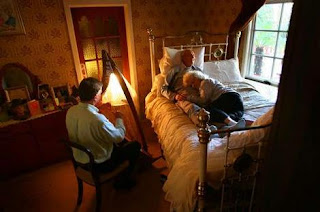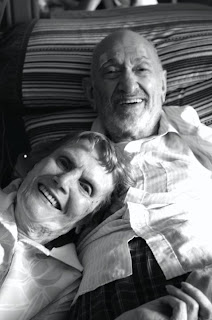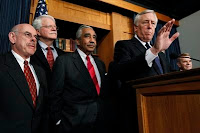Ready for some controversy? Here goes: Our illusion that death is “bad” is costing us oodles in unnecessary health care, prolonging pain and suffering, and preventing people from finding beauty in their inevitable transformation. According to a recent report, more and more Americans are being treated to death—that is, receiving costly and often ineffective care, instead of choosing to die in dignity and comfort.
More than 80% of all deaths in the U.S. are due to chronic and progressive illnesses such as cancer and heart failure. Of these, more than 80% say they would like to avoid hospitalization and intensive care at the end of their lives; yet in actuality, Americans are being treated aggressively until their last dying breath. Here are the numbers:
- The average time spent in hospice and palliative care (focused on comfort without curing) is decreasing. In 2008, one third of people receiving hospice care had it for one week or less.
- Hospitalizations during the last six months of life are rising: from 1,302 per 1,000 Medicare recipients in 1996 to 1,441 in 2005, Dartmouth reports.
- 12% of cancer patients who died in 1999 received chemo in the last two weeks of life, up from nearly 10 percent in 1993.
- Almost 20% of patients with colorectal cancer that has spread are on at least their fourth chemotherapy drug. The same goes for roughly 12% of patients with metastatic breast cancer, and for 12% of those with lung cancer. The analysis is based on more than 60,000 cancer patients.
These numbers are particularly concerning since treating chronic illness in the last two years of life eats up nearly one-third of all Medicare dollars.
This controversy lies in that some people believe we should try to extend life under all circumstances. As long as an inkling of hope remains, some say, people should fight on. And the controversy is as much political as it is moral. During the debates over universal health coverage (Obamacare), opponents stressed that health care rationing would take place, and that “death panels” would be responsible for determining who received further care and who was left to die.
Although I find this notion and fear of death panels ridiculous, I do think that our obsession with life at all costs dishonors the magnificence of the human life cycle. We are born, we live, we die. It has been said that the only thing certain in life is death, and in that we are all the same. Not one person walking the planet today will be alive in 150 years. In fact, neither will our planet live forever, nor our sun—all things move on to the next transformation.
Does this mean people should not fight for their lives? Well, it depends. To a 92-year-old, I’d say, “For what?” However, to a 22-year-old diagnosed with lung cancer, I’d say yes…with a catch. If you have an inspired purpose, something driving you to live, I believe you can beat the odds. But the purpose must be a part of your essence, a drive so strong that not even the sands of time can keep you from completing it. It cannot be some fabricated deal you try to cut with your maker in an attempt to hold on; it must be in your heart, truly a part of you. Even then you won’t escape death for long. Death is inevitable for all of us—something for the young and healthy to think about regarding their own life’s purpose, and acting on your dreams…now!
No I don’t know for sure if having deep inspirational purpose will extend your life, but my intuition tells me it is so. I think about some of the lives we have had the honor of observing, like Michael Jackson’s or Tupac Shakur’s, believing that some people know when they are not long for this earth. When we observe how some people work long and hard at the ends of their lives to complete “unfinished business,” it humbles you to the magnificence of living on purpose.
As far as dying is concerned, it is true that we all have opinions on how we will handle the inevitable, until it is our time to go. Our survival instinct—the one hard-wired into all living things—makes it very challenging to accept death as we imagine within our philosophical belief system, but we can all ultimately appreciate that transformation is all there is; and one day everyone of us will move on to the next experience. We can fear it, or we can see the beauty in the transition and be grateful. Death is the completion of one cycle, and the beginning of a new one.
*This post is dedicated to my role model and inspiration, Nate Pressman, a lover of life and God. You are dignified and beautiful in all your forms, Grandpa; and you will be with us, around us, always. We love you.






















